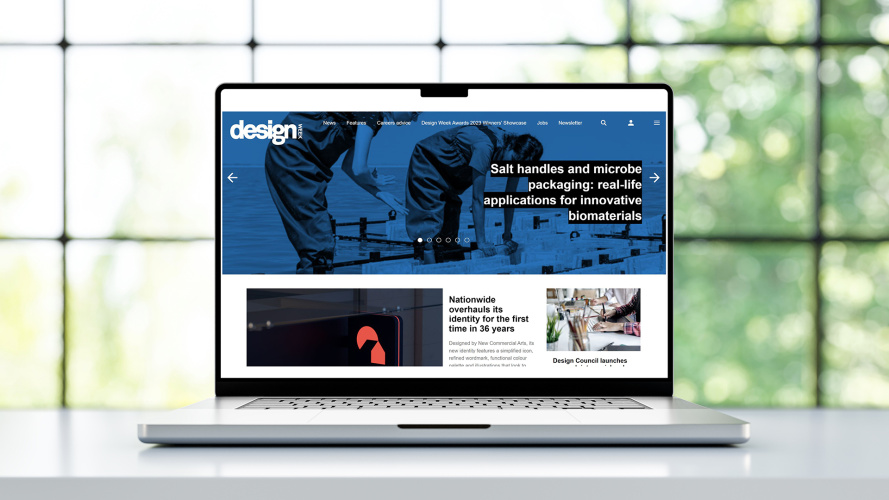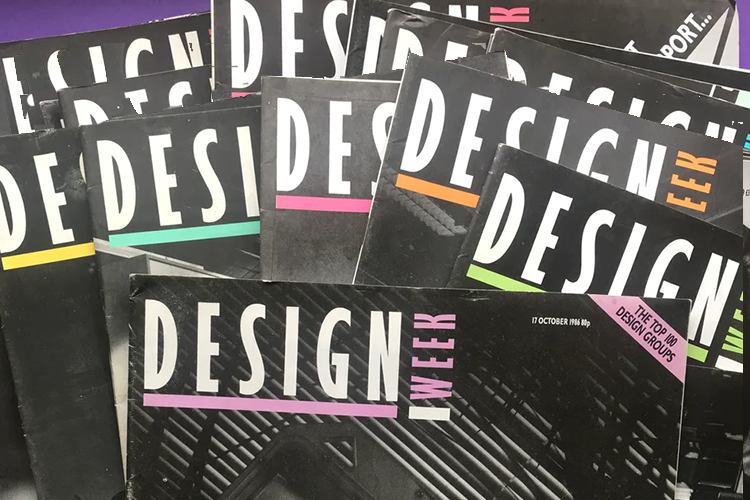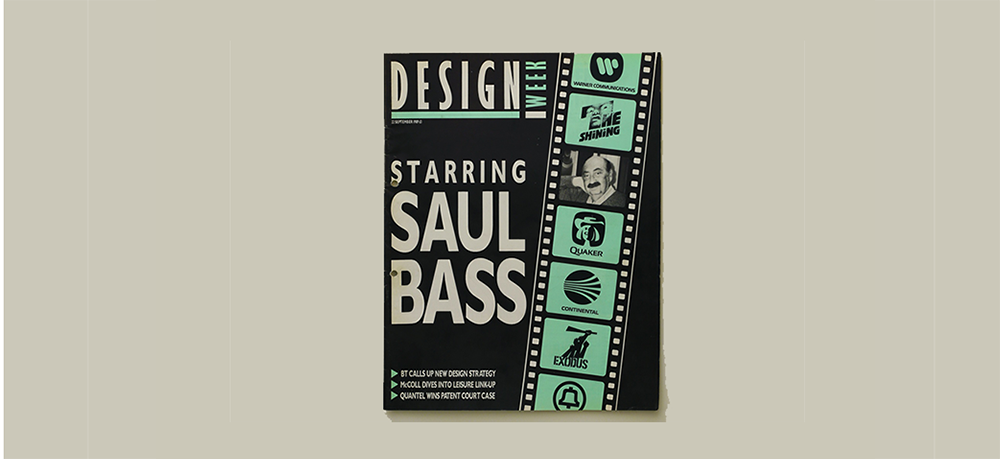Miranda Bolter: Junior designers should learn to be creative, not balance budgets
Young designers should be taught to think critically rather than waste time learning how to time-manage and compile spreadsheets, says Miranda Bolter, design director at Superunion.

A recent report from design studio Michon suggested that students and graduates lack the skills needed to help them get by in the working world, and appealed to professional designers to take responsibility in teaching them these things.
It’s great to see design studios looking at ways that the industry and those in education can work more closely together, and how we can all help graduates find their feet in a fast-moving and highly competitive business.
We should hire creative minds, not business managers
But I must admit, I found parts of the “Designing the Future” report slightly depressing. I can understand studios’ frustrations when taking on graduates, only to find that their skills are lacking – however, the emphasis placed on certain skills worries me.
The report talks about the importance of “real world” skills such as understanding timesheets, working to deadlines and budgets, and managing client expectations. Designers will have a lifetime to worry about these things. When taking on a design graduate, you should be hiring a creative mind, not an apprentice business manager.
Even software skills should not be a priority; yes, it’s important to know the basics, but certain things can be learnt on the job. When hiring a junior, you should see their potential, not a finished product. An enquiring mind, an observational eye, a brain full of ideas and a genuine enthusiasm for design: that’s what I look for. Those are the qualities that should be nurtured through university, rather than quashing inspiration with seminars on budget forecasting and time planning.
Studios should shape design education
The aspect of the report I do agree with wholeheartedly is that studios should take more responsibility for helping young designers develop. They are, after all, the future of the industry and the ones who will return the favour and push us when we start to feel out of touch. There’s nothing like someone snapping at your heels to make you up your game.
So I agree that, as an industry, we should get involved with universities in any way we can: setting briefs, running workshops, helping with portfolio reviews, mentoring. We should work more closely with tutors to understand their objectives and challenges, and help shape the agenda of design education.
Help those who won’t go to university, too
But we should not only do this at university level. If we are to successfully combat the primarily white, middle-class appearance of the creative industries and build genuine diversity – which can only be a good thing for fostering diverse creative thinking – we should be reaching students earlier, to help encourage those who may not have university in their natural path.
Inspiring the Future is a great initiative that joins schools with volunteers from different professions, to introduce young people to career paths they may not otherwise have considered. Another is the Creative Mentor Network, which, while specific to London, looks to diversify the creative workforce by opening up jobs to those from disadvantaged communities and ethnic minority backgrounds.
By working with local schools, we can show students what potential exists within the creative industries and inspire those that have an interest to find a way into the business, which may or may not involve a university degree.
Leave the spreadsheets and teach them how to critique
And honestly, whether young designers learn through higher education or on the job, there are certain skills that are more important at the start of their careers than their ability to understand a budget spreadsheet.
Problem-solving and getting to the core of a brief; knowing how to generate and critique ideas; having a point of view and the ability to communicate it; working collaboratively. These are key skills that all good designers need in their armoury.
I recently judged the New Blood Awards for Design and Art Direction (D&AD). While I was really impressed with the best work, it was frustrating to see other submissions that had the seed of an interesting idea but the designers hadn’t then known where to take it. Young creatives must learn how to critique their own work, how to push an idea and expand a project, and how to edit and refine. This is what we should be teaching – so leave the spreadsheets for another day.

Miranda Bolter is design director at Superunion, having previously worked as design director at The Partners before it merged with other studios to form Superunion. She has responded to research conducted by Michon with input from the Design Business Association (DBA) and Design Council, which suggests that design graduates are not learning skills that equip them for the working world.





I think we have to get beyond this being an either/or discussion. All of these skills are needed. Strong creative, Knowledge of the tools, and business soft skills are all necessary to make great designers.
Completely agree with you, as a designer apart of being creative also is needed to be a realist with the time, to know more or less how the industry works and not let yourself be dragged by the deadline.
I will say also young designers are not lacking much in creativity and time management, what they really lack is in job opportunities, me and friends of mine find extremely difficult to get job oportunities or in the other case offers are not paid positions, that’s what we lack, friends of mine work as waitresses and bodyguards in pubs because it’s bloddy imposible to get someone to hire us.
I’m talking about London, I don’t know how other cities are but in London is literally very uphill when you are new.
What skill you want us to learn if we doesn’t even have job oportunities as young designers?
Surely this isn’t an either/or situation. Especially since full-time positions are so scarce. Many new designers, illustrators etc are trying to go it alone because of this – and they definitely need project management skills for that. Also, more and more agencies simply don’t have pure project management roles because they understand that their clients want direct access to the creatives and don’t feel they get value for money from PMs, so the designers are expected to do it all.
Design businesses seem to measure success by how quickly they can deliver and profitability on how lean we are with our time. It’s a worrying trend.
Here’s my PoV medium.com/@anthonybcoombes/dont-rush-design-or-cut-corners-2d5ea21ef127
I’m 100% with you, Miranda. As I’ve grown my business, the team have developed a mantra (I doubt original) of hiring “passion 9, skills 5”. We can teach all the things about projects, about client focus, about work pace and understanding and doing within time constraints. Conversely, it’s really hard to teach passion and an innate desire to do work that brings unexpected benefits. It’s the people who can do that who look promising as junior candidates.
Oh please! Having worked in the design industry for 35 years and having now completed my first year as a design lecturer at 2 universities Incan happily say that they have come on loads…actually to the point where I am learning more cutting edge stuff than I did in industry. What they don’t teach in Uni is that industry expects 12 to 13 hour working days on pitifully low salaries and that you will be bled dry but if you dare question it, your passion and love for design will be in question. Sad, but oh so true.